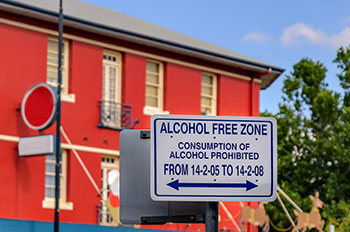The COVID-19 pandemic caused state governments to scramble to enact policies and safeguard health at a necessarily rapid pace. However, among those speedy changes were some that made it significantly easier to buy alcohol.
 Citing all kinds of justifications, from reducing indoor crowds to helping people cope with lockdowns, laws restricting the sale of alcohol fell like dominos across the U.S. Home-delivery services for alcohol went from rare pilot programs to major businesses, and “to-go” drinks once seen as a novelties that tourists pick up during Mardi Gras morphed into everyday fare.
Citing all kinds of justifications, from reducing indoor crowds to helping people cope with lockdowns, laws restricting the sale of alcohol fell like dominos across the U.S. Home-delivery services for alcohol went from rare pilot programs to major businesses, and “to-go” drinks once seen as a novelties that tourists pick up during Mardi Gras morphed into everyday fare.
In a Sunday session at APHA 2021, researchers who surveyed alcohol policy leaders reported that prevention advocates and addiction activists were often blindsided by the rapid changes.
“What we saw is a pretty dramatic increase in availability (of alcohol) across a number of different methods,” said Sean Haley, study author and health policy and management professor at City University of New York School of Public Health.
The team interviewed alcohol policy leaders in 48 states to both track legislative changes and gather first-hand accounts of how advocates engaged with their legislatures. Those surveyed said they “know” more people are drinking and have observed an increase in relapses among those who had quit. The researchers noted that to date, there is no infrastructure to quickly capture changes alcohol policies and access.
“It kind of ended a lot of the work we had done for years and years,” said one of the study respondents.
Studies have found that greater alcohol availability is associated with increases in alcohol-related harms. And rollbacks that were introduced as “temporary” are now becoming permanent in states such as Iowa and Michigan.
The bevy of new avenues to buying alcohol has left some advocates concerned that the already steady increase in alcohol consumption will only worsen. Prior to the pandemic, there was an increase of 3% per decade in alcohol consumption and an increase of 8% in predicted binge drinking.
“The prevention field was just not ready for the changes,” said one of the policy leaders in an interview with researchers.
The response may seem simple: reinstate restrictions on alcohol sales. However, the reality is that it will be an uphill battle for advocates.
“Increased alcohol availability and consumption and new changes are hard to reverse once the legislation and industry settled,” said Haley.
Photo by Ebenart, courtesy iStockphoto